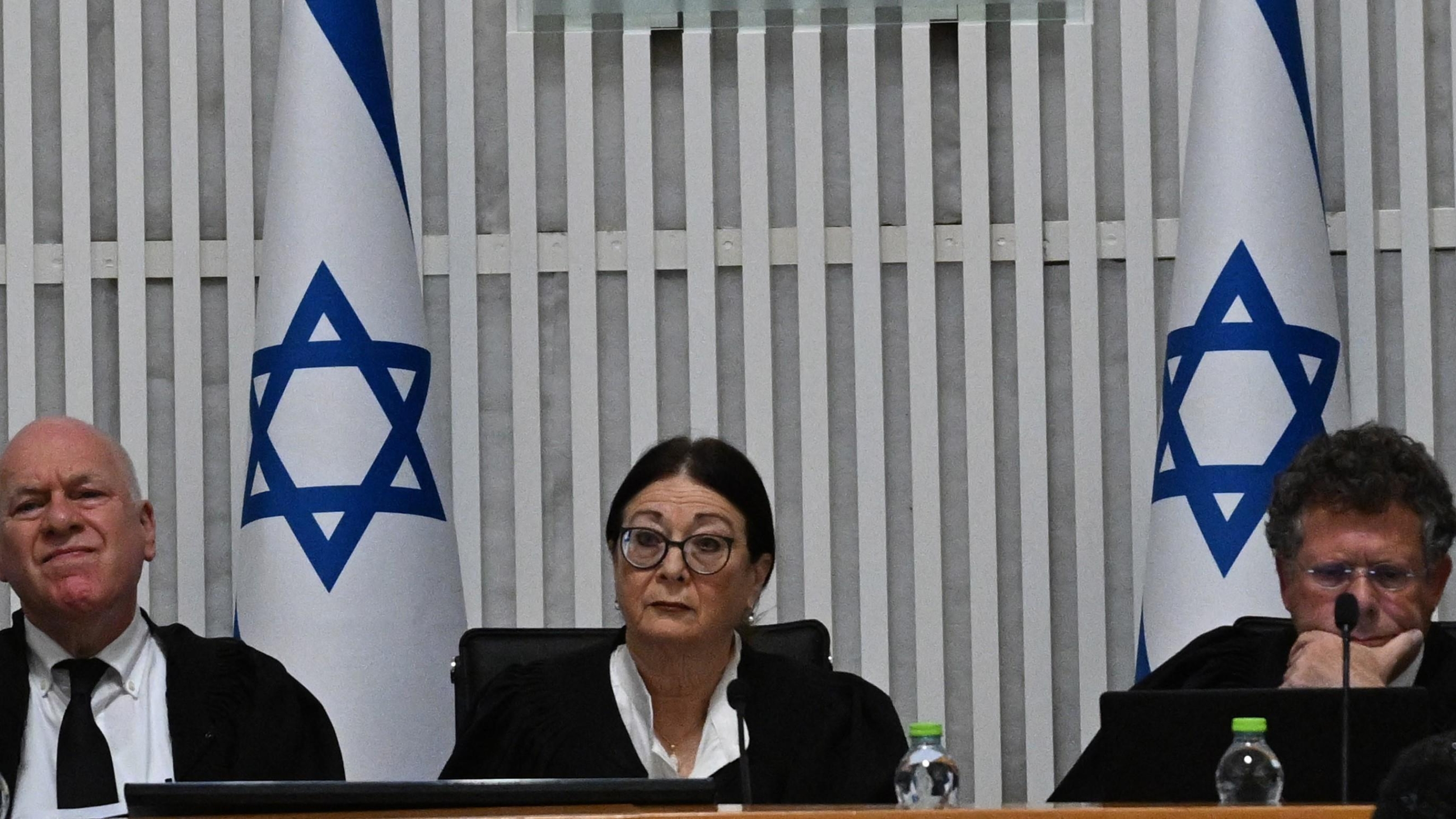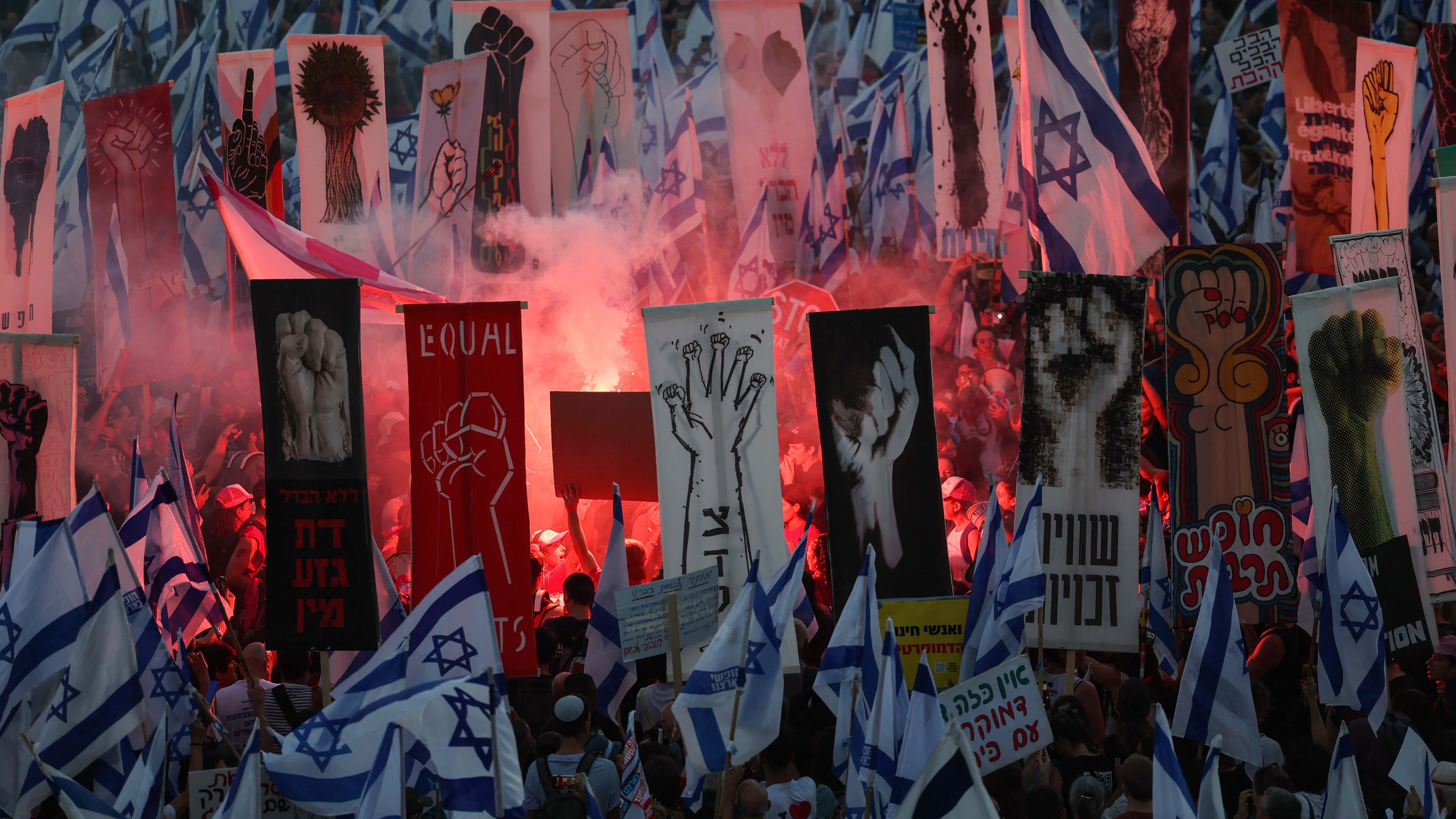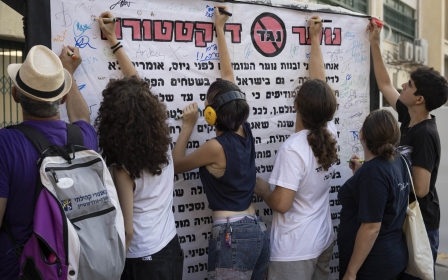Israel judicial crisis: Supreme Court hears appeal against Netanyahu's overhaul

All 15 of Israel's Supreme Court justices are due to hear a petition on Tuesday aiming to overturn a controversial law that limits their power to override legislation passed by the government.
The unprecedented hearing on the Basic Law passed by the Knesset in July could lead to a constitutional crisis pitting the judiciary against the executive, led by Prime Minister Benjamin Netanyahu.
In the summer, his far-right coalition passed legislation revoking the "reasonableness standard" - a tool used by Supreme Court justices to prevent government excesses.
The standard was a legal mechanism designed to check unreasonable government decisions and appointments.
As Israel only has Basic Laws in place of a written constitution, the "reasonableness standard" was the most effective means of balancing the power of the executive.
New MEE newsletter: Jerusalem Dispatch
Sign up to get the latest insights and analysis on Israel-Palestine, alongside Turkey Unpacked and other MEE newsletters
The main contention of the protests that have gripped Israel for most of the year has been the cancellation of the legal mechanism that allows Netanyahu to entrench his authoritarian style of governance and avoid any oversight.
Supporters of the Basic Law argue that an unelected body revoking decisions made by elected politicians amounted to undermining democracy.
Israel's Justice Minister Yariv Levin called the hearing on Tuesday a "fatal blow" to the rule of Israeli people.
The hearing, which may result in deliberations that last for months, could lead to the first incident in Israeli history that the Supreme Court has struck down a Basic Law.
With Netanyahu promising to ignore any such ruling, the prospect of a constitutional crisis becomes a real possibility, as two separate branches of govenment, the judiciary and the executive, battle over who has ultimate authority.
Protest movement
Protests against the Basic Law have been ongoing for months and the televised hearing on Tuesday will be one of the most significant political events in Israel in recent years.
Tens of thousands have attended demonstrations against the Basic Law bill since it was introduced in January.
These have continued long after the bill was passed in July with no sign of a let-up in opposition since.
The indignation is not limited to the streets and has caused ruptures within the military, long seen as one of the most revered institutions in Israel, and among former officials, including former senior Mossad officers.
In July, while reflecting on the bill, former Mossad chief Tamir Pardo said Israel had come under the "grip" of extremists far worse than the Ku Klux Klan.
In April, US intelligence leaks suggested Mossad was encouraging people to join the protests against the bill.
Within the military, some reservists have refused to train in response to the law.
Middle East Eye delivers independent and unrivalled coverage and analysis of the Middle East, North Africa and beyond. To learn more about republishing this content and the associated fees, please fill out this form. More about MEE can be found here.





